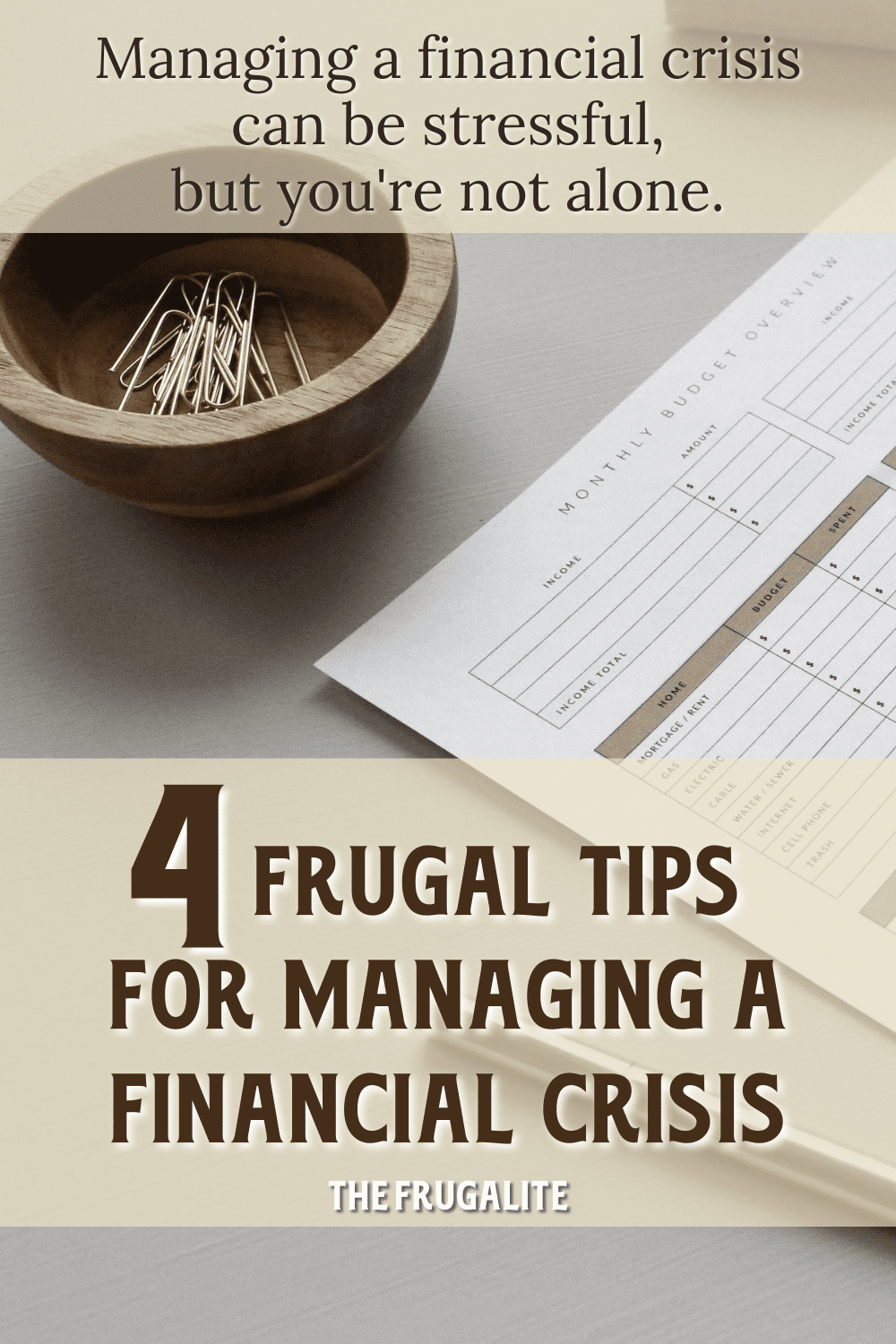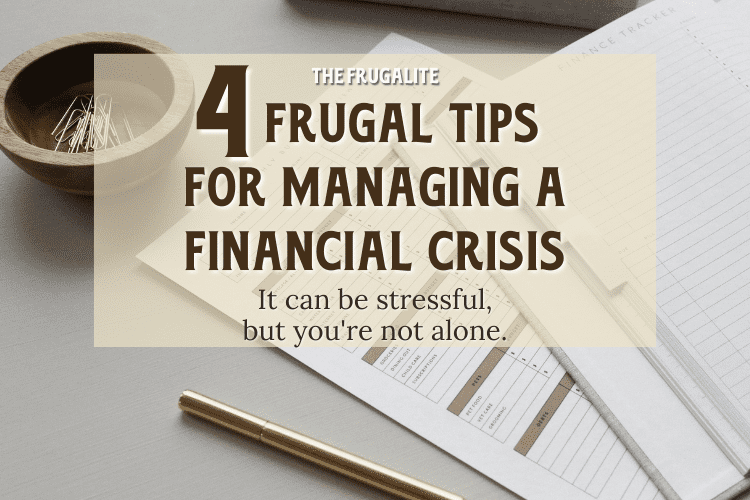(Psst: The FTC wants me to remind you that this website contains affiliate links. That means if you make a purchase from a link you click on, I might receive a small commission. This does not increase the price you’ll pay for that item nor does it decrease the awesomeness of the item. ~ Daisy)
By the author of the FREE online course Growing Self-Sufficiency: The Whole Picture
I don’t think many of us need more data to know that the economy is in trouble than what we’re living with on a day-to-day basis, going to the grocery store to (try and) buy food. However, that being said, I recently read the results of a survey that still managed to shock me. 40% or more of households are struggling to meet basic expenses in the past seven days. This is why I appreciate receiving Daisy’s Survival Sunday emails so much, as I feel like I’m kept right up to date on where things are at.
Having read that statistic, it becomes clear that the struggles for many of us are now weekly. That got me thinking about what would happen if a serious crisis was added on top of the weekly challenges these days. Think loss of a job, injury, illness, or the like. As I’ve faced my own share of difficulties like this over the years in terms of sudden financial blows, I thought I would give some thought to what helped me get through them.
As always, I am sharing with the Frugalite community in the hopes that you, too, will share your own best tips in the comments at the end of this article.
1. Assess Immediately
I like to check in with my budget every week so I always know where things are at in terms of what I have and what is due to get paid. Sometimes, when a big shock happens, like a job loss, the stress is so high that we may want to put our head in the sand for a bit, thinking I’m not ready to deal with this. Don’t do it!
Sit down with a fresh piece of paper or a screen and do your numbers.
Assets
How much is in each bank account? What pay will still be coming in, and for how long? If you apply immediately for any benefits that you might qualify for, like unemployment, estimate these as best you can. Do this projection for the next three months. If you can see that you should immediately liquidate an asset, like a bond, estimate the penalty, and add that in.
On another sheet or screen:
Debts
What do I owe on my credit? What are the minimum payments this month? What bills haven’t yet been paid? Write out how much it will cost if you pay your bills and then pay the minimums for the next three months on any credit cards or lines of credit. Be realistic. You’re in a crisis. You are not likely going to be paying down your debt right now.
Be sure to look ahead and consider any seasonal bills, like property taxes or filling heating tanks (oil or propane). What you want is to be able to answer the following questions:
- Can we cover bills and minimum payments this month?
- Is there anything left over to carry forward?
- Repeat this for Month 2 and Month 3.
You now have a mathematical projection of your situation for the next three months.
2. Identify Resources and Allies
If you are like many folks these days, an immediate income loss may leave you short in the very first month. Do you have an emergency fund? Take a look at your three-month projection and think carefully about if and when you should use any of your emergency funds. Keep in mind that the crisis may go on for a number of months. You may need it later a lot more than right now.
If you have any friends or relatives that can offer help of any kind, be sure to list these out. Maybe a friend has always offered to babysit, and you could get an extra shift at your second job. Maybe you could get a short term loan from that wealthy cousin whose deck you helped build last summer and she did say she could help anytime!
Consider immediately any and all resources that are available in your locale that could help reduce your monthly expenses right now. In my area, these resources include a number of informal food banks and community sharing shelves, as well as our formal food banks. Don’t wait until you can’t pay those bills! Use the food bank to try and create a bit of a cushion.
Do you have a pantry? I always try my best to keep several weeks of basic foods around in case of emergency. It isn’t the most glamorous stuff, but a can of chick peas can certainly help in a pinch. Here are some tips on how to build a pantry on a budget.
If you do have any kind of pantry, here are 50 tips on how to eat from it when there’s no money for groceries. In our area, there are emergency case workers connected to the health care center that can help with food and/or certain household expenses when a crisis hits. Please don’t be afraid to ask. When things get better, you can pay it forward!
Community Help
In both Canada and the US, you can also call 211 to ask about local resources. They may have answers, or they may be able to give you information that may help. Sometimes a local community will have resources that aren’t heavily advertised but still exist. This includes things like:
- local food resources
- local financial assistance
- housing assistance
- mental health assistance
- and much more
3. Cut and Sell
During one crisis that I faced, I made a list on a piece of paper of every single expense in a month. I carefully thought about what I could cut right now. I also put a star beside something I would cut if things didn’t improve in three months. So, I cut my extended health care, and put a star on my internet expense. I cut all eating out and my weekly trip to a local thrift shop for fun so that I could conserve my gas. I set a goal for how long I want that tank of gas to last and I monitored it carefully.
It’s amazing how concerns about immediate survival can make it easier to list some of your personal belonging to sell online. Realize that selling stuff takes time and get going on it today. Make a list and set a goal for how many items you will take photos of per day and how many you will actually list per day. Here’s some tips on selling online that might be helpful, and here are some tips on selling stuff offline.
4. Draw up a Plan and then…
So, you have a projection of your financial needs and assets for the next three months. Take stock of what you need to do. Make a list. What do you need to do TODAY? How about tomorrow? What needs to get done this week? What about in this first month? Do you need to have a difficult talk with your kids? Here are some tips for how to talk to your kids about it. I like to make separate lists for each of these time frames. Is there anything that you don’t know? How and when can you find out?
And then…
And then….take a deep breath and tell yourself that it’s going to be OK. Many, many Frugalities have been where you are right now. Many folks are facing similar challenges each week. The calmer you can stay, the better the choices you will be able to make. Take out a fresh piece of paper and write down ten things you’re thankful for right now. Yes, at least ten! If there is a special someone on that list who is with you in person, go over and give them a hug right now or give them a call. Keep your focus on what matters to you and do your best with the rest. You got this!
A Financial Crisis: You are Not Alone
A sudden loss of income can cause a great deal of distress, but please don’t despair. Could you see yourself trying any of the strategies offered here? Do you have one you can share with us? Please tell us in the comments below.
About Colette
Colette is passionate about sharing her knowledge of thrifty living and self-sufficiency. She has developed her skills in self-reliance living in the suburbs, the city, and more recently, on her own Half-Acre Homestead. Colette lived five years completely off-grid and without running water in an eight by 24 foot tiny home while designing and building her own 18 by 24-foot eco-cabin. Her website, Half Acre Homestead is attracting followers from around the world who want to become more self-sufficient. Colette invites you to stop by the Homestead and check out all of the great resources including the practical How To Guides, A Tiny Home Resource Center and her organic gardening stories on her blog. She shares her wholistic model (body/mind/spirit) for achieving self-sufficiency in her Free Course, “Growing Self-Sufficiency: The Whole Picture.” Stop by the Homestead today to register free of charge!












4 thoughts on “4 Frugal Tips for Managing a Financial Crisis”
I think that part of managing a financial crisis is learning how to either prevent or at least mitigate such a crisis BEFORE it possibly happens. Here are some related ideas.
One of American families’ greatest fears is that of having to file bankruptcy in case of a sky high medical event that they could not possibly pay off or raise the cash to do so. Hospitals are notorious for things like double billing, billing for services never renedered, etc and hiding such blunders with cryptic billing codes on their bills. Most people don’t know there are companies that will either negotiate such bills downward or teach you how to do that.
Another strategy is to keep a US passport handy and regularly renewed. It is a very common practice for people to cross the southern US border to get medical or dental service in Mexico where costs are significantly less. Algodones (nicknamed Molar City) is just one very popular city that’s only 7 miles from Yuma Arizona. But there is a global phenomenon of such countries that can be found by researching “medical tourism.” The US has gained the reputation of having the highest medical costs of any first world countries with some of the worst results … partly because of Medicare and insurance rates and Big Pharma’s century+ long war on successful medical methods that can’t be patented and priced sky high. Successful methods of curing cancer are just one such example of procedures that have been driven out of the US but are now available regularly in some other countries.
But suppose your financial disaster is neither medical or dental. It is becoming increasingly common for people in high housing cost states (especially coastal states) to move into their vehicles to be able to keep close enough to their jobs. There is a learning curve in order to successfully either convert or acquire a vehicle (whether car, truck, van SUV, converted school bus, etc) and then live in it. That strategy is widespread enough that there are how-to books as well as many YouTube videos to accelerate one’s learning process. For people who own their home … learning how to convert and operate that home for Airbnb type income (if local laws permit) could be a useful strategy that maintains the potential for eventually switching back to the owner’s living space since the title never changes hands. An intermediate strategy might be to simply rent out a room or two without having to live in one’s vehicle.
All of these strategies have a better chance of working if the learning process is planned and executed as a sort of self-insurance strategy well before any need might arise. Choosing or converting a vehicle for living space takes time and learning. Learning how to screen and manage tenants is mandatory, etc. I have seen people turn such rentals into disasters because they repeatedly rented to grossly irresponsible tenants that cost the owners terribly.
–Lewis
Hi Lewis, Thanks for your great comment, which focusses on some solid ideas for preventing a crisis. In my own case, I would be hesitant to rent out my place, as it is so precious to me, and I have heard horror stories from many people. However, there are many success stories, as well. As always, thanks so much for engaging so deeply with the topics and sharing so generously with the Frugalite community. Much appreciated!
Collette, I always enjoy your articles, but I consider this one to be one of the most important ones.
My husband worked in the computer industry and got caught in 3 plant closings and 4 massive lay-offs. We were always unwisely optimistic about how soon it would be until the next permanent job and used unemployment and/or severance benefits to continue living in the same style as when working. Bad, bad mistake. We’d never lived a lavish lifestyle, only had one car, didn’t take vacations nor spent money on recreational activities. But we didn’t cut back on the small things, which we should have. After the unemployment and/or severance benefits were gone, we mostly just did without and learned to live on almost nothing.
There were some valuable lessons we learned and many, many things I wish we’d done differently. You give good, sound advice on how to approach these problems. Even in retirement, we’re doing much better than back then and I hope we’re better prepared.
Hi Carla, Thanks so much. They say a picture is worth a thousand words. I think a story from someone who has been there and thoughtfully learned from it is actually priceless! Thanks for sharing your own experience. I do hope everyone reads it and thinks carefully about their own situation. Much appeciated!